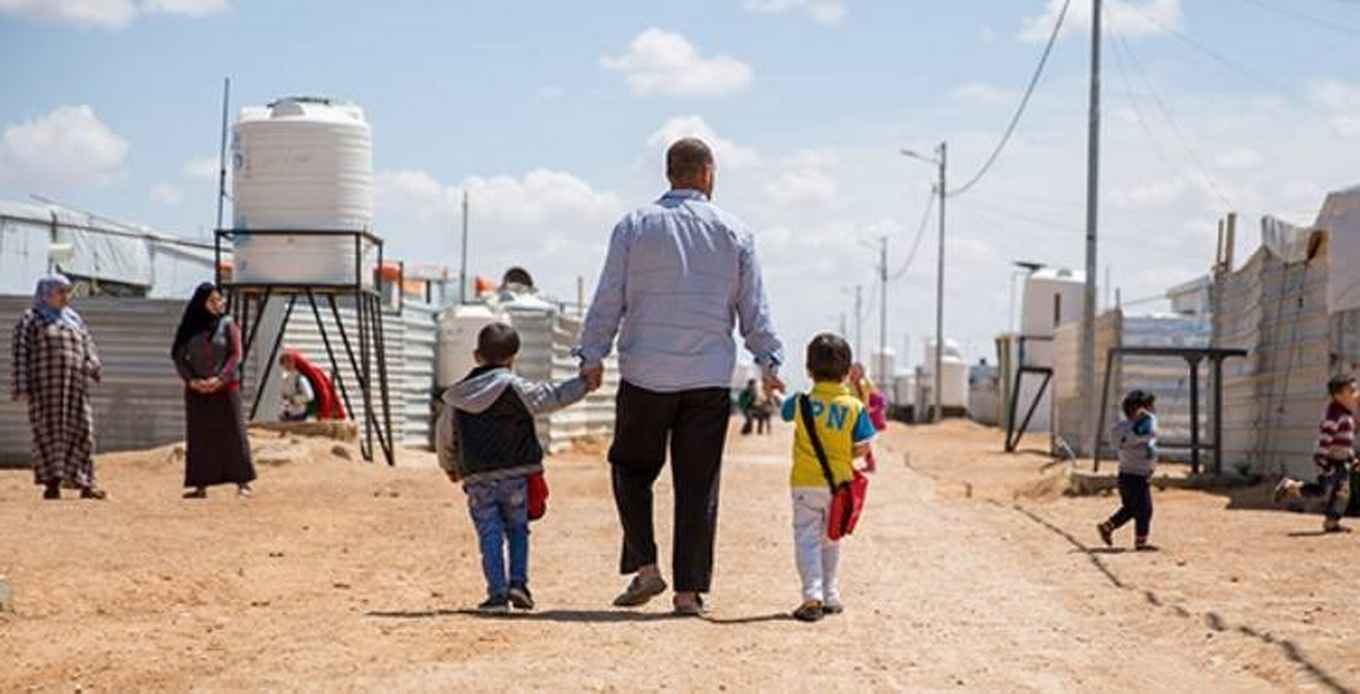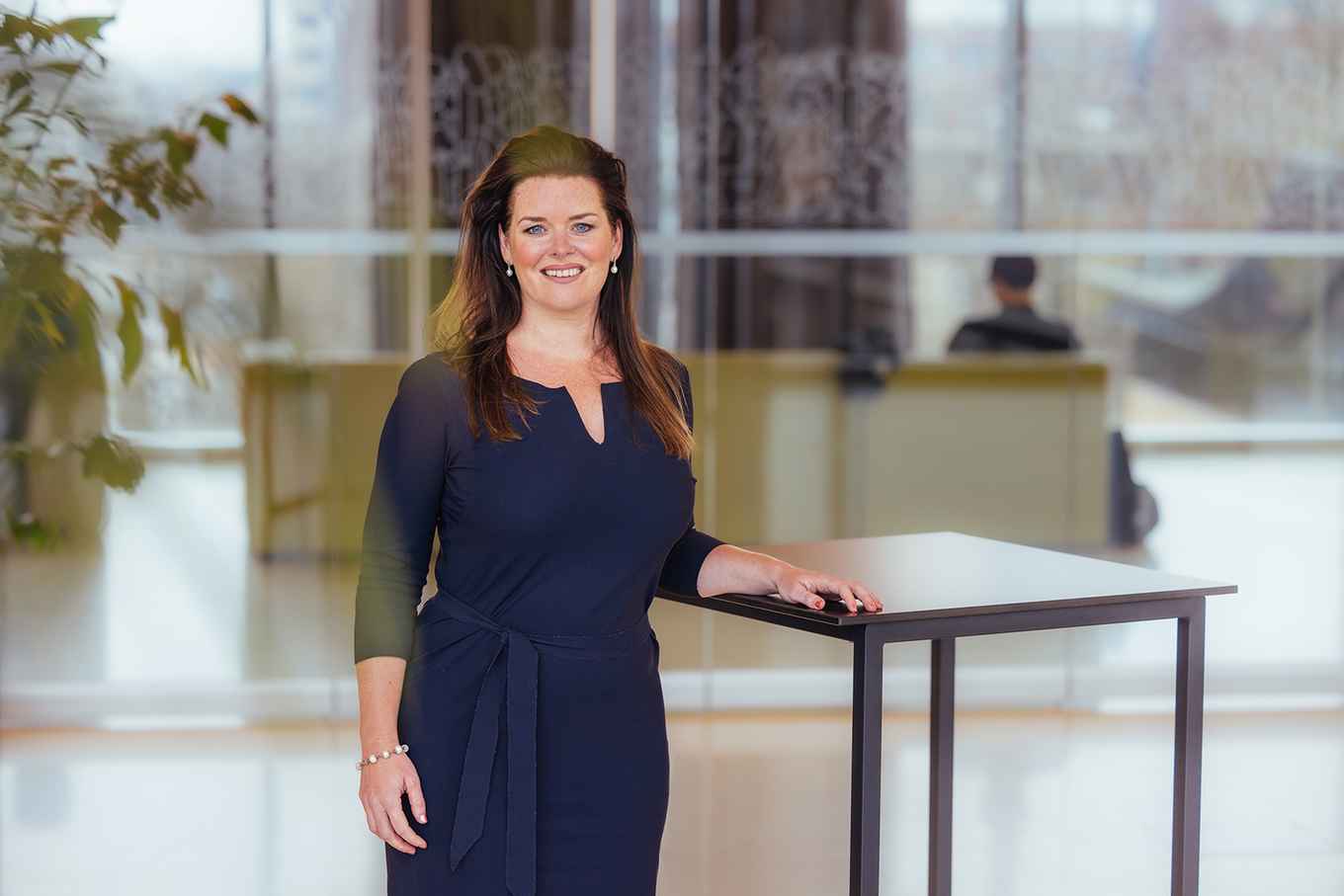War crimes are filmed, but why not prosecuted?
Marieke de Hoon examines the new role of the domestic prosecutor of international crimes with a Vidi grant
12 November 2024

A lack of evidence often plagues international criminal law. But technological advances suddenly allow many more cases to be proven. 'Prosecutors, therefore, face not only new opportunities but also new challenges,' says De Hoon. Over the next 5 years, she will investigate how prosecutors in the Netherlands, Germany, Sweden, France and Ukraine fulfil their new role. Among other things, De Hoon charts the bottlenecks prosecutors experience and with whom and how they collaborate. She also engages with victims and civil society to understand their experiences and find out how they believe the prosecutor’s role should develop.
Isn't an abundance of information a welcome luxury problem?
'Yes, but then people often say: you have the evidence, so why don't you prosecute? But it's more complicated. Some thought has been put into where all this new information should go. The International, impartial and independent mechanism, the IIIM, was established as a collection point for potential evidence of international crimes in Syria. Algorithms are deployed to manage all that data. But what does that mean if you are a prosecutor knocking on the door a few years later for information on a suspect? How can you guarantee the defense that this is all the evidence there is when you rely on algorithms to provide you with the information? It requires a new kind of thinking about the role of the prosecutor. You have to consider different factors and risks.'

A few decades ago, there was 100 % certainty that you could get away with serious war crimes
What new risks do prosecutors face?
'Prosecutors get more information about a case. However, they could lean on information from NGOs, and that isn't necessarily representative: those organizations do what they are funded to do. Sexual violence, for example, can be investigated much less by NGOs because of the vulnerability of victims. The information prosecutors receive cannot always be translated into evidence in court. There is a huge mismatch there. That means a lot of people are disappointed. Why can't more be done with all the information out there?'
Why is information so difficult to translate into court?
'A prosecutor doesn't just need information about the crime itself, but also about the perpetrator's identity and intent. That evidence is very complicated. In a video, for example, you see someone in a uniform committing a crime. But who exactly is that? Can you prove that beyond reasonable doubt? Then, the suspect must also be found to let him know that he is being prosecuted. Most of these suspects are in Syria or Russia or other countries where they are protected. Just because more information is available does not mean prosecution is a walk in the park. With MH17, for example, a lot of information was available from the research collective Bellingcat. However, prosecutors still redid Bellingcat's work because otherwise, the court might not have found the evidence equally valuable or become more vulnerable to foreign critique. Legal evidence standards and collaborations with public and private parties must be developed with adequate safeguards for the rights of the accused, endangered witnesses and victims.'
Do prosecutors need to develop different skills?
'A prosecutor is trained with the idea that a regular crime is investigated in your own district. Complex international crimes committed in another country require different skills: selecting information, cooperating with organizations, relating to large groups of severely traumatized victims, partly in your country, partly abroad, without close ties to and trust in our legal system. Actively cooperating with many other parties involved in evidence collection is very different from receiving information occasionally. Now, prosecutors often have to rely on their network: “I hear they have information over there, too.” That this is how information happens to come together is not how it should be in the future. It doesn'tdo justice to the number of victims in wars and the seriousness of those crimes.'

These cases can become more meaningful to large groups of victims
What is a better way to do this?
'After a murder within the domestic jurisdiction, we sort everything out. But in these severe cases in wars, we have to make choices because we lack the means to prosecute all war crimes. Prosecutors are independent, but there is a lack of theorizing behind the choices that are made. This study should change that. How do we understand this new prosecutorial role and what do we expect from these prosecutors? For example, do you prosecute an opposition party if evidence is found that they committed a crime, or do you include the larger context of who the real villains are in that conflict? Who do you cooperate with? And can you rethink the evidence and communication around the case in a way that makes it relevant to more victims?'
What does it mean if prosecutors can do these things more effectively?
'Think of all the Syrian refugees who don't get justice in Syria. If we can prosecute such a case in the Netherlands, you hope that other victims of the Assad regime will think “this is also about me”. Cases like this are time-consuming but can mean something to many more people than the victim in question. It is then essential how you communicate about these cases. Out of all the information that is availlable, you might use 2% for a case. But you've analyzed much more data. You might, for example, know that certain people are definitely victims, but we don't know who the perpetrator is. So, what can we do with that information? Can it still contribute to recognition for those victims?'
What do you hope to achieve with this research?
'We can do very little about what happens in wars, but we can do more for the victims if we handle information effectively and think about what choices we make. It's easy to say that these cases cost a lot of money and then count the actual judgments. But this is also about developing standards and the broader fight against lawlessness. A few decades ago, there was 100% certainty that you could get away with serious crimes, like burning out a village and raping everyone there. Now, we have more capacity and information that we can share with other countries. That requires a rethinking of the role of these prosecutors, different skills and appropriate policies and legal frameworks. These cases can become more meaningful to large groups of victims and hopefully help ensure that future generations can move on based on shared facts.'